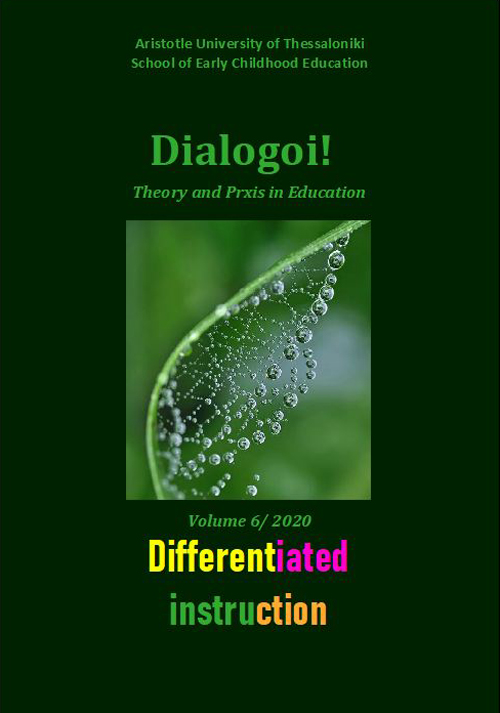PhD Thesis: The impact of Differentiated Instruction in kindergarten children's achievement

Abstract
Differentiated Instruction (DI) provides an alternative framework that builds upon children’s diversity, towards maximizing their learning. This study investigates the relationship between DI and kindergarten children’s achievement, while DI is applied in the context of knowledge integration. The study followed a semi-structured research plan, with the participants of the experimental group being 80, while 74 children participated in the control group. The data collection included pre- and post-tests of individual interviews and was analyzed through statistical and content analysis. To assure the interventions fidelity, a program of Professional Development was applied, supporting teachers of the experimental group in the application of DI. The results confirm DI’s positive impact in children’s achievement, quantified greater than the “teaching to the middle” approach. Moreover, DI proves to counterbalance the initial achievement differences among different groups. Therefore, DI’s features (e.g. freedom of choice, group assignments, agency) facilitate the active engagement of children in their learning, thus leading to better academic results.
Article Details
- How to Cite
-
Μαβίδου Α. (2020). PhD Thesis: The impact of Differentiated Instruction in kindergarten children’s achievement. Dialogoi! Theory and Praxis in Education, 6, 301–318. https://doi.org/10.12681/dial.25561
- Issue
- Vol. 6 (2020)
- Section
- Correspondence and Presentations

This work is licensed under a Creative Commons Attribution-NonCommercial-ShareAlike 4.0 International License.
Authors who publish with this journal agree to the following terms:
- Authors retain copyright and grant the journal right of first publication with the work simultaneously licensed under a Creative Commons Attribution Non-Commercial License that allows others to share the work with an acknowledgement of the work's authorship and initial publication in this journal.
- Authors are able to enter into separate, additional contractual arrangements for the non-exclusive distribution of the journal's published version of the work (e.g. post it to an institutional repository or publish it in a book), with an acknowledgement of its initial publication in this journal.
- Authors are permitted and encouraged to post their work online (preferably in institutional repositories or on their website) prior to and during the submission process, as it can lead to productive exchanges, as well as earlier and greater citation of published work (See The Effect of Open Access).


